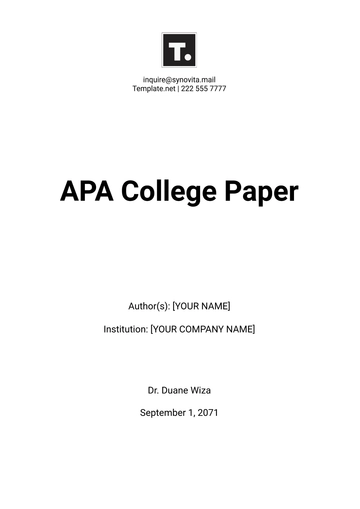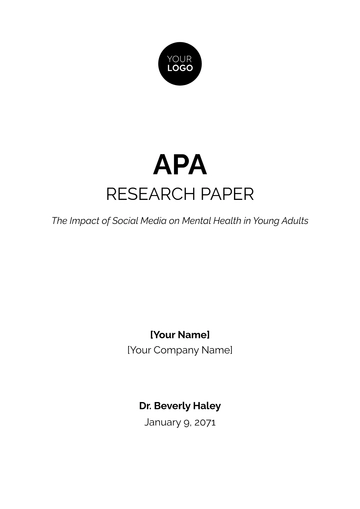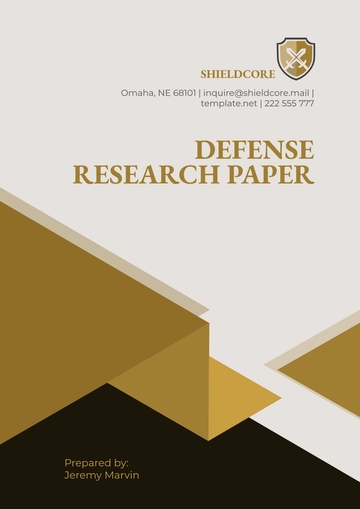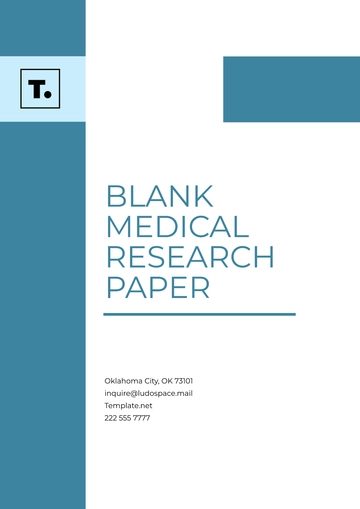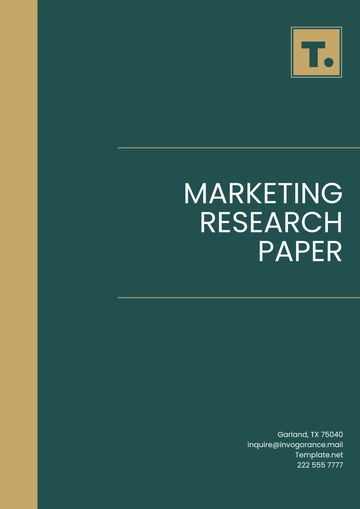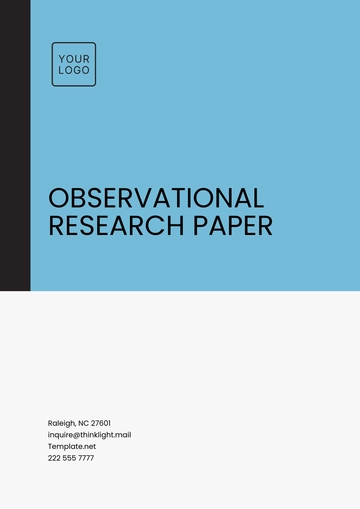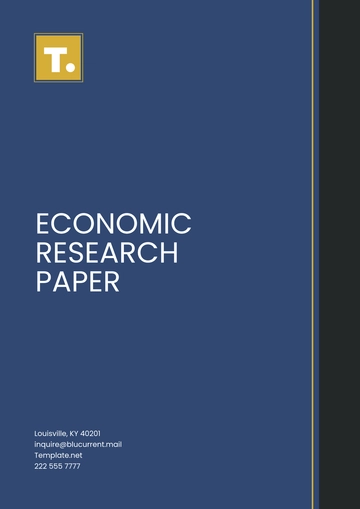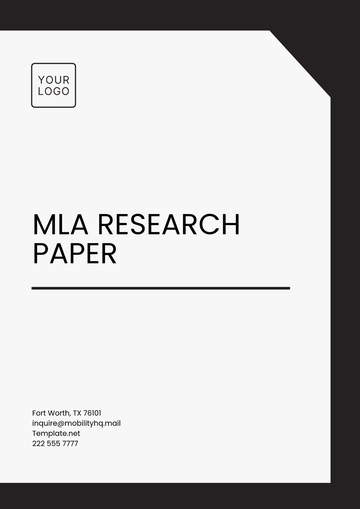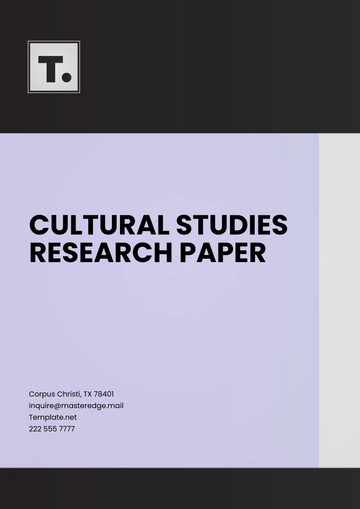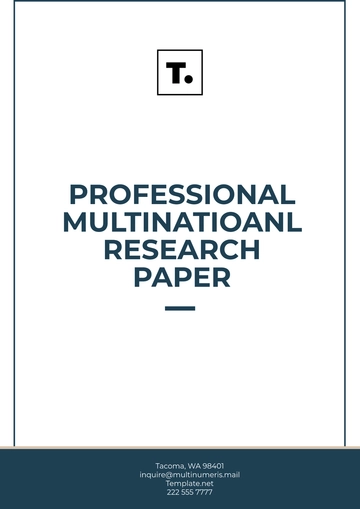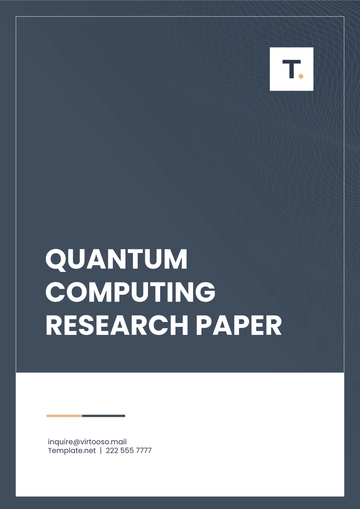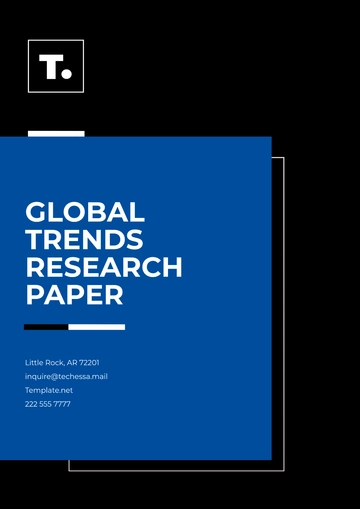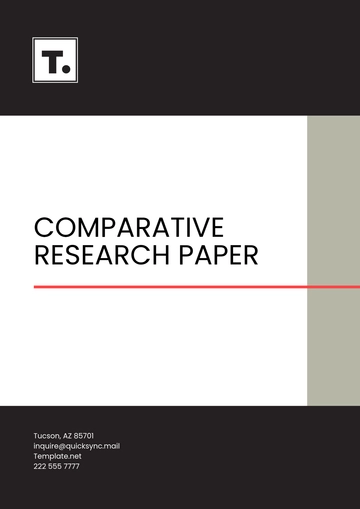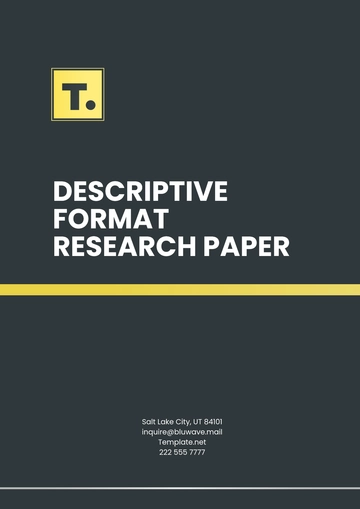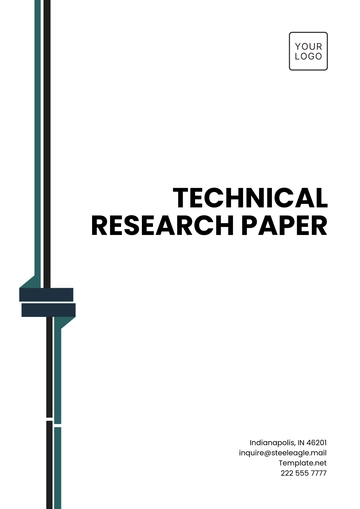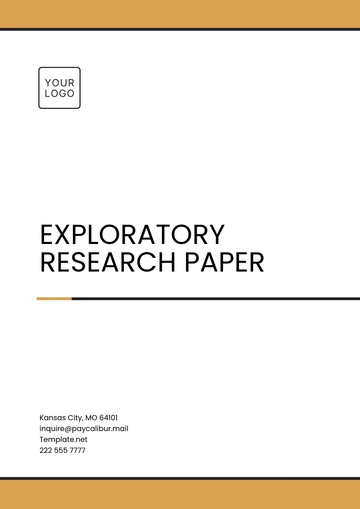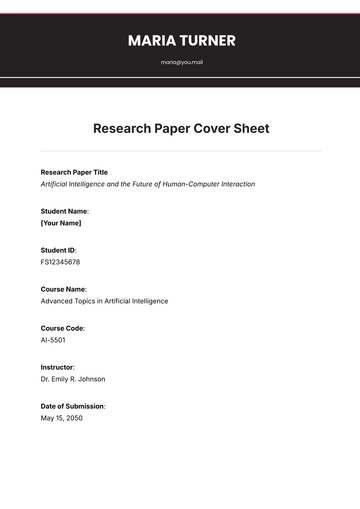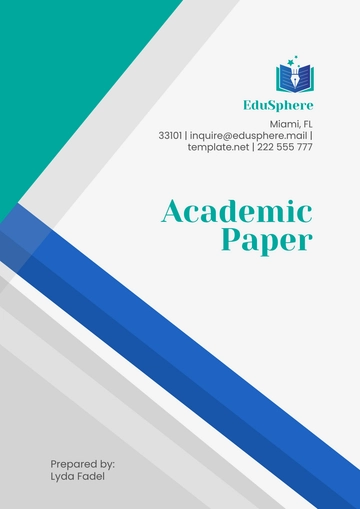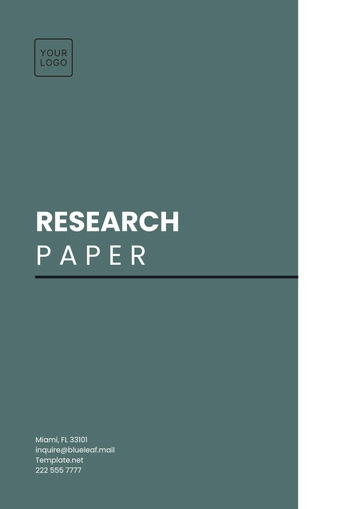Free Professional Multinational Research Paper
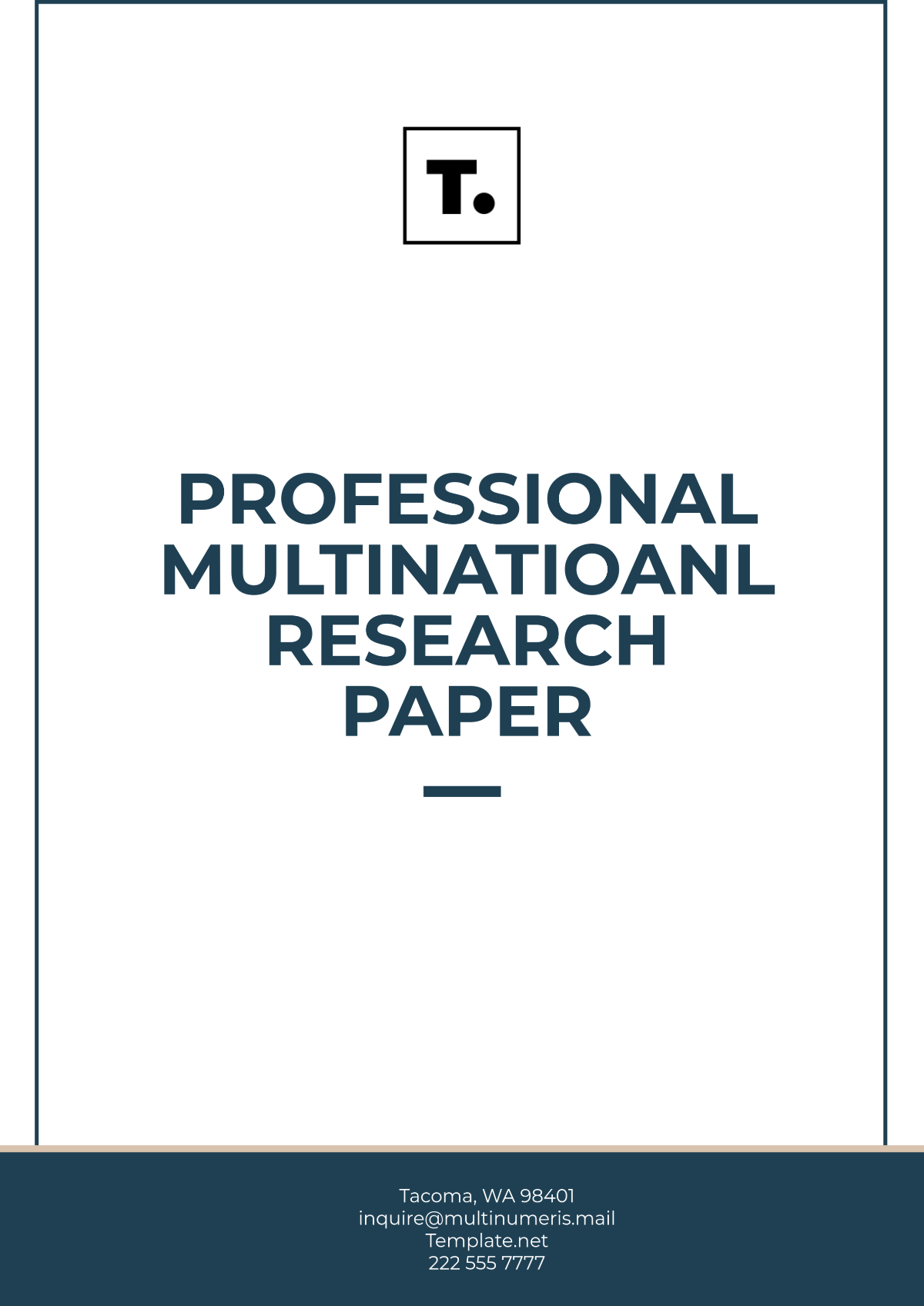
I. Title Page
Title: Impact of Global Digital Transformation on Multinational Business Operations in 2060-2070
Authors: Dr. [Your Name], Dr. Rafael Torres, and Dr. Mei Ling Zhang
Affiliations: Department of Global Business Studies, International Research University
Date of Submission: January 10, 2060
II. Abstract
This research explores the profound impacts of digital transformation on multinational corporations between 2060 and 2070. It examines technological advancements, cultural integrations, and policy shifts influencing global operations. The study employs a mixed-methods approach, analyzing data from 50 multinational companies across five continents. Key findings indicate that digital technologies, such as AI-driven supply chains and blockchain-led financial systems, have revolutionized business efficiency while posing challenges in data security and regulatory compliance. The research provides actionable insights for policymakers and corporate leaders aiming to navigate this dynamic landscape.
III. Introduction
Digital transformation has been a driving force reshaping industries worldwide. In the context of multinational corporations, this transformation brings both opportunities and complexities. This paper examines how advancements in technology, particularly artificial intelligence (AI), machine learning (ML), and blockchain, impact business operations globally. We focus on identifying trends, challenges, and opportunities for businesses to adapt to this technological evolution. The study addresses the following research questions:
What are the primary drivers of digital transformation in multinational corporations?
How do technological advancements affect cross-border operations?
What strategies can corporations adopt to remain competitive in this era of rapid change?
IV. Literature Review
A. Overview of Digital Transformation
Research conducted by Gibbons et al. (2059) highlights the role of AI in optimizing supply chain processes. Similarly, Zhang and Associates (2058) discuss the integration of blockchain for enhancing transparency in international trade. Existing studies emphasize the need for robust cybersecurity measures to address vulnerabilities arising from increased digitization.
B. Multinational Business Operations
Theoretical frameworks by Miller (2057) and Patel (2056) explore the interplay between cultural diversity and technological adoption in multinational settings. These works underscore the necessity for adaptive management practices to accommodate regional differences.
C. Research Gaps
While existing literature provides valuable insights, there is limited empirical data on the long-term impacts of digital transformation on multinational corporations, particularly beyond 2060. This study aims to fill this gap.
V. Methodology
A. Research Design
This study employs a mixed-methods approach, combining quantitative surveys and qualitative case studies. Data was collected from 50 multinational corporations spanning technology, healthcare, and finance sectors.
B. Data Collection
Surveys: Distributed to 500 senior executives across five continents, achieving an 85% response rate.
Case Studies: In-depth analysis of three corporations: GlobalTech Solutions (technology), HealthSphere International (healthcare), and FinSecure Group (finance).
C. Data Analysis
Quantitative data was analyzed using statistical tools such as SPSS and R, while qualitative data was coded and interpreted through thematic analysis.
VI. Findings
A. Technological Advancements
AI and ML: AI-driven analytics improved decision-making for 92% of respondents.
Blockchain: Enhanced transaction security and transparency were noted as major benefits.
B. Challenges
Data Security: 68% of executives cited cybersecurity threats as a critical concern.
Regulatory Compliance: Differences in international laws create operational complexities.
C. Regional Variations
North America and Europe: High adoption of AI technologies.
Asia and Africa: Emphasis on mobile-first solutions due to infrastructure constraints.
VII. Discussion
The findings highlight the dual-edged nature of digital transformation. While it fosters efficiency and innovation, it also introduces vulnerabilities. For example, AI can optimize supply chains but requires significant investment in cybersecurity measures. Regional variations underscore the need for tailored strategies that consider local technological readiness and regulatory environments.
VIII. Conclusion and Recommendations
A. Conclusion
Digital transformation will continue to shape multinational operations profoundly. Companies that embrace innovation while addressing associated challenges will gain a competitive edge.
B. Recommendations
Adopt Proactive Cybersecurity Measures: Invest in AI-driven threat detection systems.
Develop Regional Strategies: Align technological adoption with local contexts.
Enhance Workforce Training: Equip employees with skills to leverage digital tools effectively.
Collaborate with Policymakers: Advocate for harmonized regulations to streamline operations.
IX. References
Gibbons, L., et al. (2059). "AI in Supply Chain Optimization." Journal of Global Business Studies.
Zhang, M., et al. (2058). "Blockchain and International Trade." International Trade Journal.
Miller, J. (2057). "Cultural Diversity in Technological Adoption." Global Management Review.
Patel, R. (2056). "Adaptive Management in Multinational Settings." Multinational Business Quarterly.
X. Appendices
A. Survey Questionnaire
Sample questions were used to assess digital adoption in multinational corporations.
B. Case Study Profiles
Detailed descriptions of GlobalTech Solutions, HealthSphere International, and FinSecure Group.
- 100% Customizable, free editor
- Access 1 Million+ Templates, photo’s & graphics
- Download or share as a template
- Click and replace photos, graphics, text, backgrounds
- Resize, crop, AI write & more
- Access advanced editor
Examine global organizations with the Professional Multinational Research Paper Template from Template.net. This editable and customizable template is perfect for studying international businesses, trade policies, or cross-border operations. Editable in our Ai Editor Tool, it offers a clear layout for presenting findings, analyses, and recommendations. The professional design ensures your work adheres to academic or industry standards


